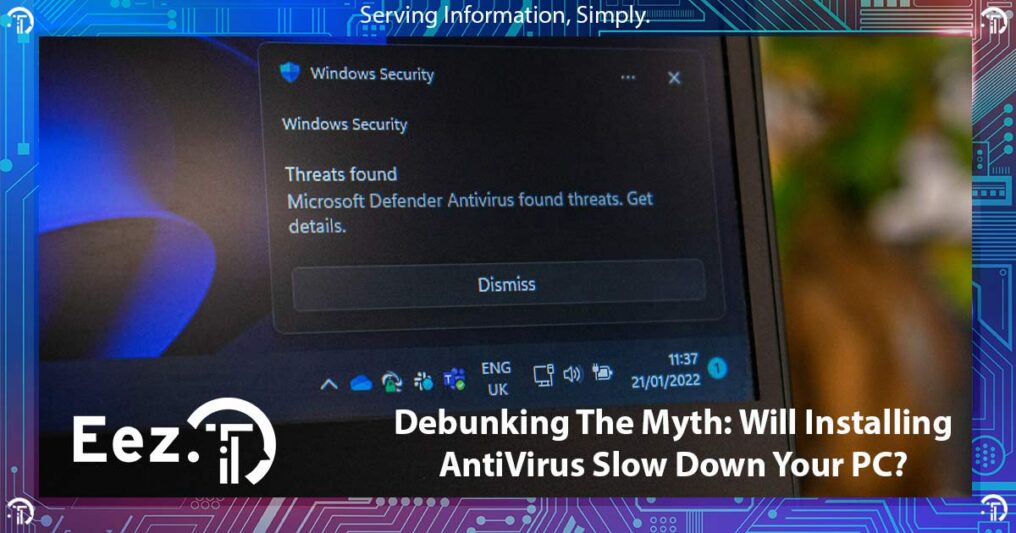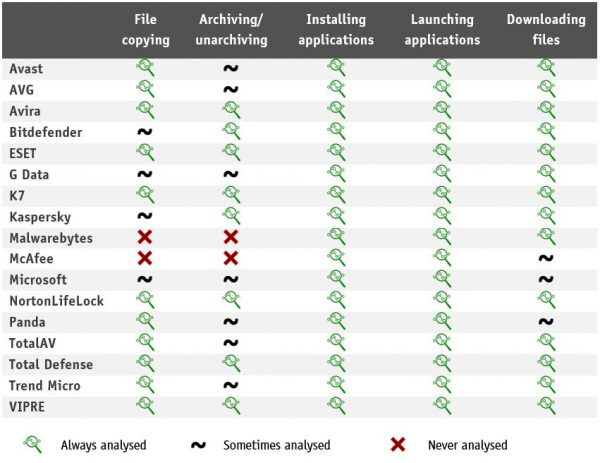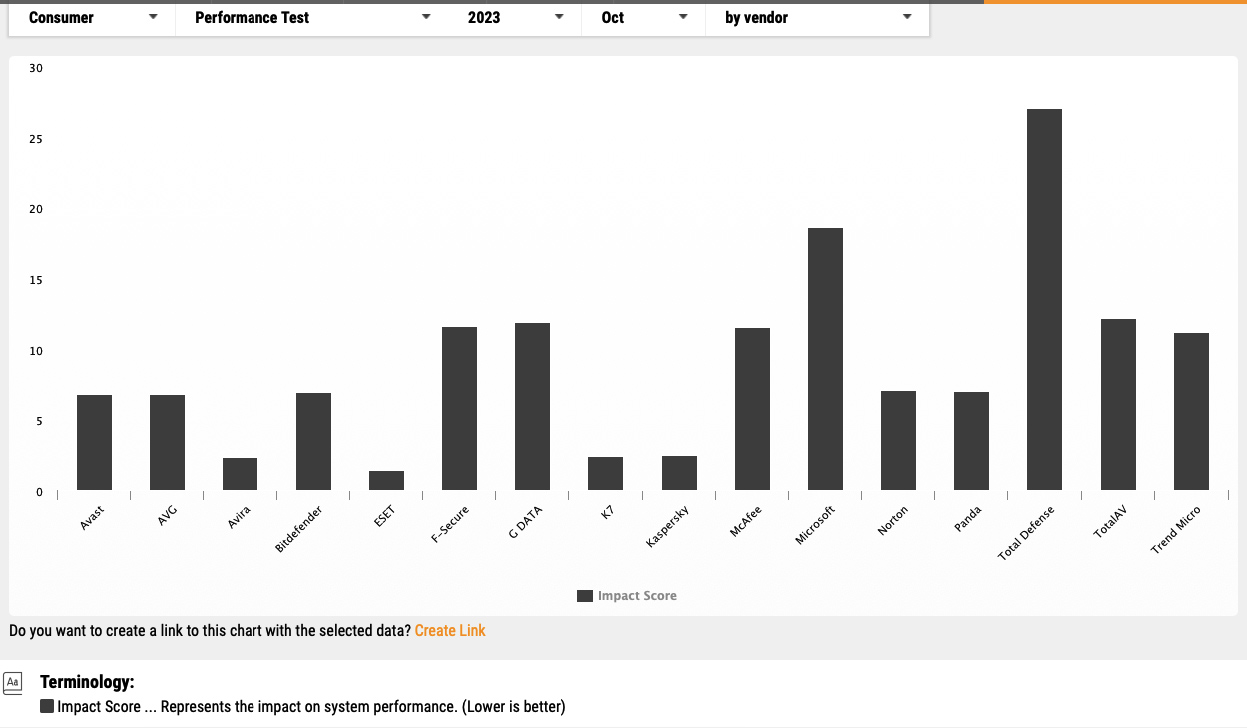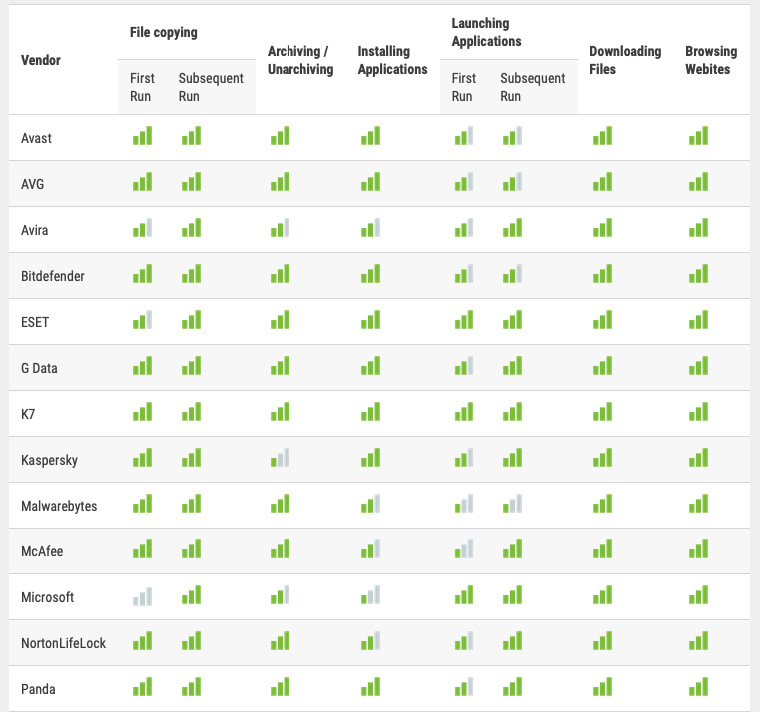Call Us
Debunking the Myth: Will Installing Antivirus Slow Down Your PC?

When a computer’s demand for resources exceeds its available capacity, it slows down. This applies to all programs, making the commonly asked question somewhat flawed. A more relevant inquiry might be, “Is my chosen antivirus consuming an excessive amount of resources, and are there alternatives that operate with less strain on my system?”
While there’s a prevalent belief that antivirus software significantly slows down computers, this isn’t as accurate as it once was. The evolution of modern antivirus systems involves caching substantial data and offloading a significant portion of processing to the cloud. Consequently, this approach enhances software performance while demanding fewer resources.
Understanding Antivirus Software
An antivirus software’s primary role is safeguarding your system against malicious software by actively engaging on various fronts. It’s crucial to emphasize its proactive nature, given the frequent encounters with unprotected systems with antivirus software in a passive state due to expired licenses.
The software proactively scans files when they are downloaded from the internet, copied from one location to another when a program is being executed, when browsing the internet or when receiving emails. Different software comes with different levels of protection, which is why it is important to check the features of the antivirus of choice and ensure it covers the features you require. Some for instance will also scan archives while others won’t, etc.
This software takes a proactive stance by scanning files during internet downloads, copying between locations, program execution, web browsing, and email reception. Notably, different antivirus programs offer varying levels of protection, requiring scrutiny of their features to ensure they match your specific needs.
Unlike traditional counterparts, modern antivirus software employs multiple detection methods. The primary techniques include signature-based, heuristic, behavior-based, and cloud-based approaches.
Relying solely on signature-based antivirus isn’t comprehensive protection, as it depends on known infection signatures for detection. Hence, additional layers of defence, such as heuristic or behaviour-based methods, become imperative.
Heuristic detection involves scrutinizing the code for atypical instructions that legitimate applications wouldn’t typically execute. Conversely, behaviour-based methods simulate a secure environment to observe code actions, aiding in determining its legitimacy or malicious intent.
Cloud-based detection entails installing a lightweight agent on the local computer and offloading analysis to the provider’s infrastructure. This makes cloud-based antivirus software the least resource-intensive protection available. However, most antivirus programs incorporate a blend of these capabilities for a robust defence.
Factors Influencing PC Performance
Certainly, variations exist among antivirus software in their resource consumption, prompting a need for careful consideration of potential trade-offs in performance. Charts like the one available on av-comparatives.org demonstrate how certain vendors might bypass file inspection in specific scenarios to enhance performance, albeit at the risk of potential user infection.
While such optimizations can boost system performance, they also introduce a slight vulnerability where users might be at risk of infection. Although these settings are often customizable, the majority of users lack the technical expertise to make informed decisions or alterations.

It’s essential to note that the correlation between vendor and the tasks performed in this chart doesn’t necessarily directly indicate the overall efficacy of these products. Similarly, a less resource-intensive antivirus doesn’t inherently equate to a less secure solution. Numerous factors contribute to analyzing antivirus performance, making definitive statements challenging.
There’s a complexity to evaluating antivirus software beyond resource consumption, encompassing a wide array of considerations crucial for determining its effectiveness and security measures.
Antivirus Impact on PC Performance: Myth vs. Reality
Blaming antivirus software for sluggish system performance is a common reflex. However, more often than not, system slowdowns stem from clutter, inadequate hardware maintenance, or outdated systems. While a subpar antivirus could contribute to a system slowdown, it’s crucial to accurately identify the real cause.
Referencing a chart from av-comparatives.org, dated October 2023, reveals which products have a lower impact on system performance. Additionally, tests conducted on basic system configurations, like an Intel Core i3 with 4GB of RAM and SSD, showcase varying performance impacts across different antivirus products during activities involving scanning, such as file copying and web browsing.


![]()
To determine if your antivirus is the culprit behind a system slowdown, conduct a simple check. In Windows, use the Task Manager tool to inspect associated processes, while on a Mac, utilize the Activity Monitor. If these antivirus processes significantly hog resources compared to others, it’s likely the cause.
Troubleshooting can involve temporarily halting antivirus operations. Access this option within your software interface, often under settings like ‘real-time protection.’ Observe any changes in performance once these operations are stopped or the antivirus is uninstalled.
Moreover, it’s wise to investigate potential hardware issues contributing to system slowdowns, such as overheating or failing hard drives. Refer to resources, like our article on slow PC performance and what to do, for insights into identifying root causes and enhancing system performance.
Optimizing Antivirus Software for Better Performance
Optimizing your antivirus software involves specific actions and settings adjustments that can notably improve system performance. During installation, antivirus software often adds components like VPNs or password managers. If these aren’t necessary, uninstalling them reduces the background resource consumption.
Fine-tuning the antivirus software settings for a lighter footprint can also boost system performance. Actions like disabling hardware-assisted virtualization, creating scanning exclusion rules for trusted storage locations and applications, and scheduling full scans during system idle times contribute to an enhanced user experience.
For regular users seeking a balance between lightweight performance and robust security, choosing an antivirus preconfigured as lightweight yet offering high-security measures is advisable. Researching comparison charts and statistics available at av-comparatives.org/comparison can guide this decision. Our own experiences align with their findings, leading us to recommend Eset and Bitdefender products for their exceptional balance between performance and detection rates. It’s important to note that we have no affiliations with these vendors and do not receive discounts on purchases.
Making these adjustments and choosing a well-balanced antivirus solution can significantly improve system performance without compromising security.
Balancing Security and Performance
Selecting an antivirus that strikes a balance between security and performance becomes crucial unless your system boasts high-end processing power. While this isn’t an easy task, the information provided thus far in this article aims to guide you through this decision-making process.
Modern anti-malware software leverages cutting-edge solutions such as artificial intelligence, behavioural detection, and machine learning algorithms. These innovations not only bolster security but also enhance performance, ensuring a harmonious blend of both aspects.
In aiding your decision, consider that Eset and Bitdefender stand as commendable choices in 2024. Both harness cloud-based technologies to reduce local processing demands and employ cached data, eliminating the need for redundant rescanning unless changes occur.
This article serves to empower your choice in selecting the right antivirus software, whether through detailed guidance or by placing trust in our recommendation for Eset or Bitdefender, known for their adept balance between cloud-based efficiency and robust security measures.
Key Takeaways
Prioritizing security is non-negotiable. Selecting the appropriate antivirus and tailoring its settings to match your system’s requirements demands thorough research. Some products might impose a significant performance impact or exhibit a lower detection rate—sometimes both.
Should this task feel overwhelming, never compromise by choosing to remain unprotected. Our team of Calgary IT Specialists is dedicated to offering expert guidance and aiding you in configuring the ideal product for your security needs. Reach out to us or book an appointment online with one of our security experts, available to visit your location today. Your safety is our priority.

